Professor Eishi Yamamoto, Faculty of Letters, Understanding Today’s China Through the History of its Dynasties
*Position titles, etc., are those at the time of publishing.
Eishi Yamamoto
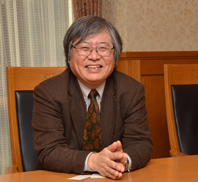
Prof. Eishi Yamamoto graduated from the Faculty of Letters at Keio University in 1973 and in 1976 acquired a master’s degree from the Graduate School of Humanities and Sociology at the University of Tokyo, where he also completed doctoral course requirements. He has a Ph.D. in literature. He was an assistant professor at the Yamaguchi University Faculty of Humanities, and was subsequently appointed in 1987 as assistant professor of the Faculty of Letters at Keio University and became a professor in 1996. He was an advanced student at Shandong University from 1982 to 1983 and a visiting researcher at Peking University from 1994 to 1995 and at Harvard University from 1995 to 1996. He specializes in the socio-economic history of the Ming and Qing dynasties and modern Chinese history. His numerous publications include, Gendai-Chugoku no Rirekisho [The Curriculum Vitae of Contemporary China], Shindai-Chugoku no Chiiki Shihai [Regional Governance in the Qing Dynasty], and Chugoku no Rekishi [History of China].
China remains an enigma to Japanese who share different values
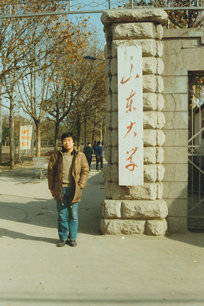
──Which period of Chinese history are you researching?
I am studying the Qing Dynasty with particular focus on the governing principles of the central government and its relationship with the regional governors who were entrusted with the task of territorial administration. Through this research, I hope to understand the “Chineseness” that modern China tried to reinvent.
I gained a renewed interest in Chinese studies when I started teaching at university. In particular, living in mainland China in my early 30s was a major turning point for me. China and Japan officially established diplomatic relations in 1978, and from hence forth exchanges between the two countries gradually increased on the private sector level. Back then, I was teaching at Yamaguchi University. Yamaguchi Prefecture is located close to the Shandong Peninsula and also has strong ties with China. It didn’t take long for the university to sign an academic exchange agreement with Shandong University, and I, being unmarried at the time, was the first to be selected for the program. Life in Shandong was worlds apart to that in Beijing, and the people in Shandong were by no means affluent. The starting wage for a university graduate was around 7000 yen, which was incommensurable to a young person’s wage like mine in Japan. There were also huge culture gaps between the two countries, and although it was not easy, that in itself was an extremely valuable experience.
The most shocking experience was discovering that the China I had been studying since I was a student was completely different from the China I came face to face with. The country, which had just come out of the Cultural Revolution and lacked experience in transnational exchange, differed greatly from Japan in terms of, needless to say, economic activities as well as lifestyles and values. I became fascinated with the fact that there were vast differences between the two countries, when the only thing separating us was the East China Sea.
──What specifically were some of the cultural differences you experienced during the exchange abroad?
For example, when I used to go shopping in China, I would ask the shopping assistant at the counter for something, and they would bring the product from the back shelf where they kept all their products. Sometimes, they would tell me that they don’t have what I wanted even though I could see the product right in front of me. At times, the unfriendliest of staff would change their behavior depending on the customer. Since I rarely received this kind of treatment in Japan, I was inclined to think it was racial discrimination. However, I realized afterwards that they had their own ways of thinking and their tight circle of personal relationships. Also, Chinese people would also quite often ask what my salary was. In Japan this would be considered an improper question, but it was a normal thing in China.
When I thought about why China developed such different values, it occurred to me that maybe the basic values in contemporary China can be traced back to before the Cultural Revolution and that the value system from then is still being carried on until the present. If that were true, I thought by researching the history of China, I would be able to pinpoint what specifically is being carried on from the past, and this would also help give an insight into the country’s future. History is about studying the past, but my primary objective for researching history has always been to understand contemporary China.
Investigating the Gap between the “Façade” of China’s Centralized Authoritarian Rule and the Reality
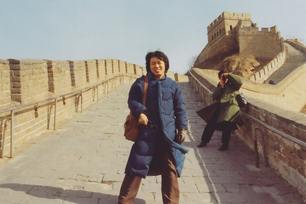
──You mentioned you are trying to understand the present through the past. What is your approach to carrying out this kind of research?
I am conducting research related to regional governance during the Qing Dynasty. It is understood that since the First Emperor of the Qin Dynasty made his conquest to unify China, there has always been one emperor or ruler controlling every part of the country. The smallest administrative unit was the county, to which county magistrates, or local magistrates, were dispatched by the central government to rule on the Emperor’s behalf. However, the reality was different. There were around 2,000 counties during the Qing Dynasty, but the county magistrates were not able to administer complete control over their entire territories. That is why powerful people from the local area were drawn into service and entrusted the task of regional governance, and the Qing Dynasty was only barely able to exercise rural control under a centralized political and administrative system, which existed only in form. This can also be said for contemporary China—with a land area 27 times that of Japan, it is doubtful whether the Beijing government’s power really penetrates every corner of the country. However, the government is implementing policies on the assumption that it does. This is how I came to research the real nature of Chinese politics beyond its façade.
Another line of research I am conducting is related to the maintenance of order in the villages during the Qing Dynasty. The administrative unit below the county level was the village, and the members of the local gentry were recruited and given tasks of authority including collecting taxes. However, the official state only extended down to the county level, and although the imperial authority silently acknowledged the existence of these local gentry, they were not given a salary since they were not formally approved under the official administrative system. This allowed illegal and corrupt practices to take root in the form of bribery. This was the structure of society where both the “façade” of imperial power and the reality come into play. This exact structure still remains partially in China today.
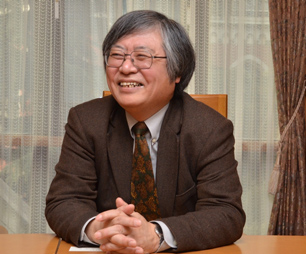
──What do you find particularly interesting in your search for this “Chineseness”?
The important thing is identifying what is at the surface-level in China, understanding the difference between reality and what is written in history books or what the politicians say, and understanding the mechanism of how people in authority separate the truth or their real opinion from the face they show in public.
For example, there is the issue of mianzi or “face (honor)” in Chinese society. Since early times, the idea of keeping face has been more important than life itself, and it has been said that a person will be successful in anything as long as they value their face. However, this idea is difficult to fathom for a Japanese person. The Japanese approach to diplomacy is more upfront and straightforward. Even though this approach may work with Western countries, it is not necessarily the most effective method when dealing with China or other countries in Asia.
China has gone through major changes in the 21st century and is currently on a similar path of rapid economic growth to what Japan experienced. However, as a result of this progress, China will not necessarily develop similar values to Japan. This is what makes China, China. There is a deep-rooted skepticism and resistance to Western-style modernization. This is what makes China difficult to understand, and at the same time so fascinating.
The China I Discovered Through My Fieldwork
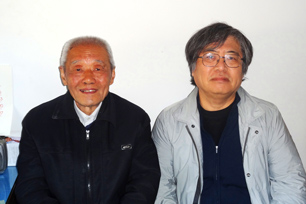
──I understand that you still conduct regular fieldwork in China.
Yes, I make regular trips to a farming village near Suzhou and interview local residents in their late 80s to early 90s. Through their stories, I am able to learn about what actually happened in these areas—the kind of information that does not end up in history books. Suzhou is a relatively affluent region and is located close to Shanghai, the symbol of China’s modernization, as well as to Nanjing, a city which formerly served as a capital of the Republic of China. One would expect the city of Suzhou to have moved toward modernization at an early stage, but the reality was not so simple.
The subjects I interview all experienced the Sino-Japanese war, but they hardly ever talk about the Japanese soldiers. Since China is a huge country, majority of the people were not direct victims of the war and are extremely friendly towards me. When we go and talk to these people, most of them in fact talk enthusiastically to us because they are happy that visitors from a foreign country are interested in their past.
Similarly, anti-Japan education is being taught in China, but these teachings and whether they actually penetrate the masses is a completely different story. In China there is a saying, “陽奉陰違” [to devote externally but oppose internally], which describes the common people’s traditional attitude of outwardly obeying what the government says but disregarding them in secret; such being the case, I don’t think that anti-Japan education has permeated Chinese society, at least not as deeply as it appears. Since it is a vast country, the government must “assume that it has total control of the nation.” These are also things I realized by being in China.
──I feel that Japanese people’s perception of China has changed greatly in recent years.
In the past, a lot of the students who wanted to major in East Asian history had read or seen the Annals of the Three Kingdoms or documentaries on the Silk Road, and developed a fascination with ancient China. At least in the 1980s, more than 70% of Japanese people felt an affinity with China. However, in the 21st century we have witnessed a complete reversal.
Japanese people have a tendency to not want to study things they dislike. In this respect, Americans are very practical in that they study what they think is useful regardless of whether they like it or not. At Harvard University, there is a library devoted to materials and resources on Asia. The first floor is dedicated to Japan, the second to China, the third to Vietnam, and the fourth to the Middle East and Islam. In other words, each time the U.S. is involved in a war, resources from its enemy countries mount. Setting aside the question of whether war is right or wrong, I do think that Japanese people need to start thinking a little more strategically.
Whether it is a friendly relationship or one of hostility, Japan will always have ties with China. It wouldn’t hurt to learn the language, and it is extremely important to see the real China in person and compare the reality of the country from what you see in the media. Keio University also launched the China Summer Language and Culture Program in 2009. All the students who participated say that China was completely different from what they had imagined. Visiting the country and actually seeing and verifying things they’ve only heard about until then is a fundamental part of studying history. Going overseas and knowing what it feels like to be a foreigner is also a valuable experience. I encourage all the students to have the courage and step out into the world.
*This article appeared in "Kenkyu Saizensen" (January 30, 2015) of Keio University Japanese Website.
*Position titles, etc., are those at the time of the interview.
